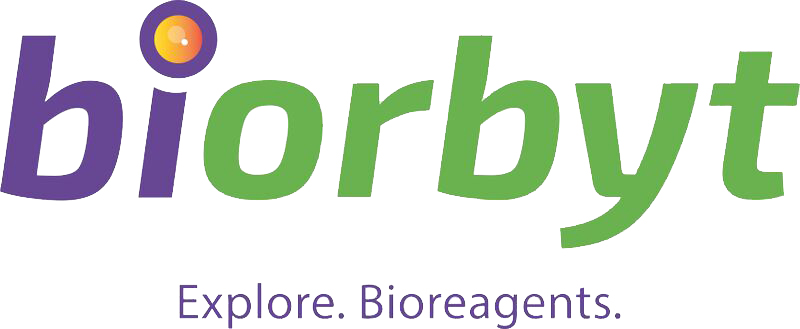Recombinant Antibodies Background
The increasing use of antibodies in research dictates the need for more consistency and reliability. Recombinant antibodies are produced by cloning antibody genes into expression vectors. These vectors are then introduced into non-animal hosts, allowing the in vitro production of identical antibodies that can be mass-produced. Furthermore, the immunogen sequence is known at the outset of production and antibodies to unusual targets such as toxins or unique protein modifications can more easily be generated. Recombinant antibodies, due to the use of expression vectors do not suffer the same genetic drift as traditional monoclonal antibodies, ensuring consistency and quality between batches. Biorbyt’s range of recombinant monoclonal antibodies allows us to provide a constant, dependable supply of tailored antibodies specific to your target of interest, allowing you to focus on your research goals without interruption.
Recombinant Antibodies Production
There are two main methods for generating Recombinant Antibodies, in vivo and in vitro.
In vitro Recombinant Antibody Production Cycle
During in vitro production, synthetic gene sequences are cloned into vectors and introduced into hosts such as yeast or bacteria. These vectors subsequently reproduce, generating recombinant monoclonal antibodies. This process has numerous advantages:
-
Faster than in vivo, usually taking just a few weeks.
-
Can produce higher quantities of antibodies without causing harm to the host.
-
Able to produce antibodies that are traditionally difficult to generate via in vivo methods.
In vivo Recombinant Antibody Production Cycle
Using the in vivo hybridoma technique, antibodies are generated in a similar way to traditional antibodies, as recombinant antibodies are cloned from hybridized B-cells. This is achieved by immunising a host with the antigen, followed by isolating the B-cells that are produced. The antibody sequence generated by the B-cell is cloned and expressed, followed by thorough testing and screening for the highest specificity and binding. The heavy and light immunoglobulin chain genes are subsequently cloned into expression vectors, ready to produce identical recombinant antibodies.
We have a growing library of validated recombinant antibodies. Contact us for advice to support your research.
Advantages and Applications of Recombinant Antibodies
-
Ensures consistent quality between antibodies and batches.
-
Tailored specificity and increased efficacy.
-
Continuous production ensures a fast and reliable supply without compromising on quality.
-
DNA is available and stable for production and long term storage.
Recombinant antibodies are suitable in any situation that you would use monoclonal antibodies. Research areas and applications using recombinant antibodies include:
-
Flow cytometry.
-
Drug therapy.
-
Western Blot.
-
Immunohistochemistry.
-
Immunoprecipitation.
-
Immunofluorescence.
-
Structural biology.
-
Immunotherapy.
Several types of recombinant antibody fragment are now recognised and utilised for different applications:
-
Fv, variable fragment. This is the smallest antibody fragment retaining antigen binding capacity. Consisting of variable fragments of light (VL) and heavy (VH) chains they tend not to be very stable fragments.
-
scFv, single chain Fv, where heavy and light chain fragments are connected. These fragments have been developed as possible drug candidates, as well as components or domains of drug candidates. They are the “simplest” target for cloning and expression but can be unstable during therapeutic use. They have a shorter half-life in circulation compared to larger fragments.
-
(scFv)2, fragment - 2 connected scFv molecules. These have better in vivo transport into tissues compared with the scFv-fragments.
-
dsFv, variable fragment. These are often expressed in bacterial and yeast expression systems when they’re small non-glycosylated antibody fragments.
-
Fab- and (Fab)2, fragments - synthetically expressed versions of the familiar fragments generated by enzyme digestion of classically raised immunoglobulins.
-
VH, heavy chain variable domain. Single-chain fragment variable (scfv) molecules combining the coding sequence of the variable heavy (VH) and sequence of the variable light chain (VL) domains in a single-gene encoded format.
-
Diabodies, triabodies and tetrabodies. These molecules consist of two, three, or four identical or different fragments of antibodies of the same or different specificity linked together.
Poor quality antibodies contribute to a considerable amount of wasted research funds. Antibodies that lack specificity and function produce results that are not reliable or reproducible. Recombinant antibodies overcome these issues, saving both time and money.
바이오클론(주) www.bioclone.co.kr
email : bioclone@bioclone.co.kr
TEL : 02-2690-0058
